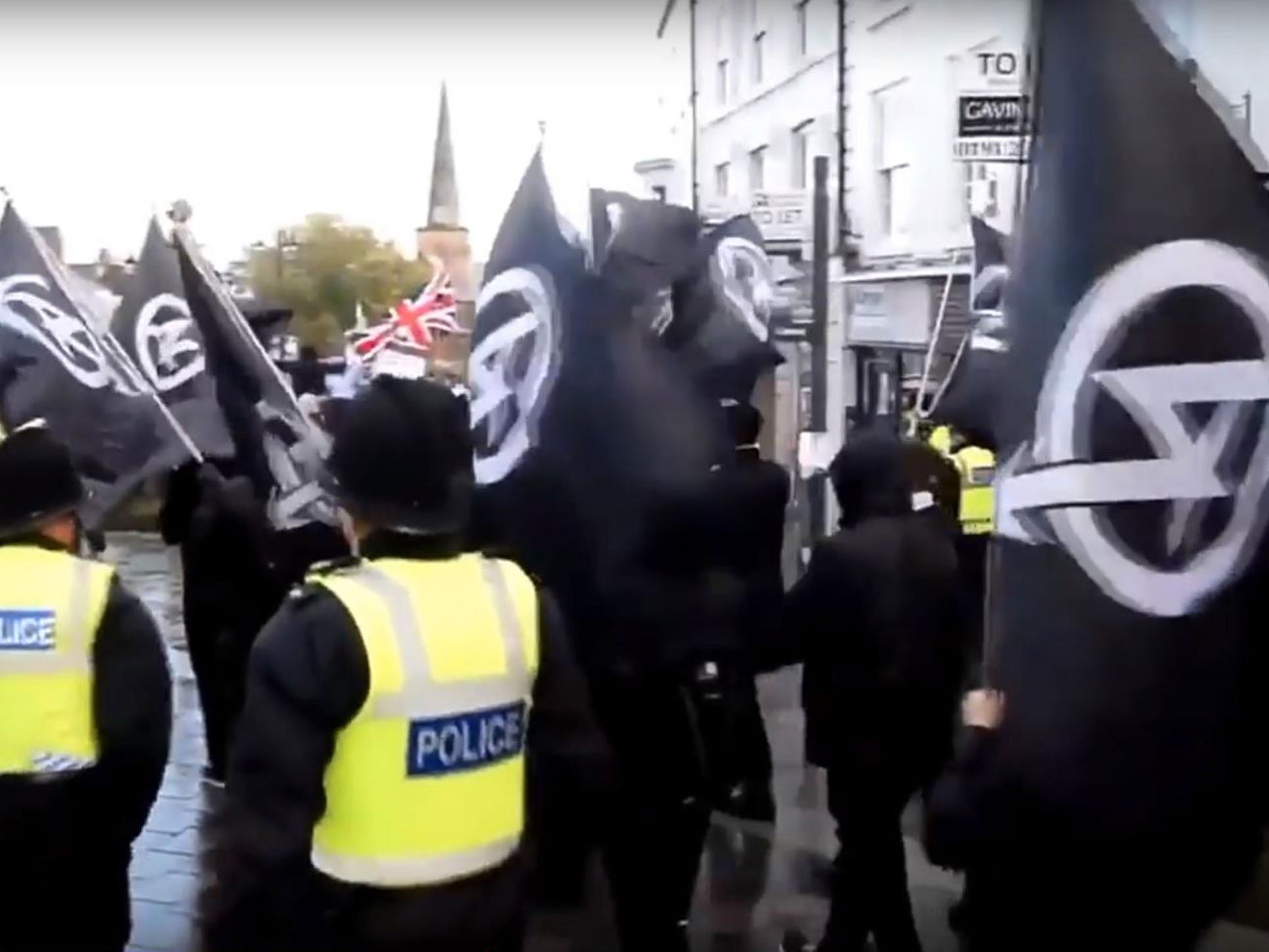Why has Britain banned a neo-Nazi terrorist group that ‘no longer exists’?
Analysis: Feuerkrieg Division claimed it ‘officially dissolved’ in February and members have already spread to new online groups, reports Lizzie Dearden. The government’s move shows the difficulty of keeping up with the far right

Few people will have heard of Feuerkrieg Division (FKD), which is soon to become the sixth neo-Nazi group banned in the UK. Allegedly started by a 13-year-old Estonian boy in 2018, its members span more than a dozen countries and few have ever met in person.
Like other emerging neo-Nazi groups, it exists primarily online, with members sharing their ideology, propaganda, terror manuals and attack plots under pseudonyms in encrypted chats. Membership estimates range between 50 and 80 worldwide, and many of those are believed to be teenagers.
Announcing her intention to proscribe FKD as a terrorist group on Monday, Priti Patel said: “This vile white supremacist group advocates violence and seeks to sow division, targeting young and vulnerable people online.”
The new ban will make membership a terror offence punishable by up to 10 years in prison. But according to FKD itself, it no longer exists.
A message sent out on one of its official channels in February said the group had been “officially dissolved”, and that anyone claiming to be a member was a “fed or a plant”.
Intelligence agents and anti-fascists who infiltrated FKD forums believe the message was misinformation intended to take the heat off members, following a spate of international arrests.
Later that month, they were reportedly debating new names – with the “Happy Hitler Friends” being one tongue-in-cheek suggestion – and continuing efforts to recruit new members.
The Independent understands that British intelligence agencies believe members remain active through other online channels, and continue attempts to inspire acts of violence.
But if they successfully distance themselves from the FKD brand, prosecutions for membership will be made difficult in the UK. Terrorist groups have rebranded themselves to avoid such efforts in the past, with varying degrees of success.
Anjem Choudary’s al-Muhajiroun Islamists went through a rapid series of names since being banned in 2006, and no one – not even Choudary himself – has ever been prosecuted for membership.
But the charge has been used successfully against 15 jailed members of National Action, which became the first neo-Nazi group to be banned by the British government in 2016.
The organisation attempted to continue its activities by splitting into regional factions operating under different names, but Scottish Dawn, NS131 and System Resistance Network were later proscribed as aliases.

In February, the government banned spin-off Sonnenkrieg Division, which – like FKD – was inspired by the US Atomwaffen Division and American neo-Nazi James Mason’s “Siege culture”.
At least two alleged FKD members are currently being prosecuted in England for other terror offences, and The Independent is aware of at least two other Britons involved with the group.
The two men, who are not known to have been arrested, posted a photo of themselves in an online chat wearing combat fatigues in a forest, performing Hitler salutes and holding an FKD flag.
They, like the neo-Nazis before them, are likely to shift to a rebranded group to further their aims.
Counter-extremism group Hope Not Hate accused the British government of being “again behind the curve when it comes to identifying and taking action against far-right groups”.
“The current move to proscription fits the existing pattern of diminishing or defunct groups being banned long after their threat has passed,” it added. “It calls into question the opaque and slow-moving process of the Proscription Review Group.”
It called for the government to act instead on Satanist neo-Nazi movement the Order of Nine Angles, which alongside Siege exerts significant influence on numerous smaller groups.
The government’s proscription efforts have done much to aid the prosecution of neo-Nazis in Britain, but their ideology survives and continues to spread.
And while it does, new groups will crop up time and again to further the same aims.
Join our commenting forum
Join thought-provoking conversations, follow other Independent readers and see their replies
0Comments